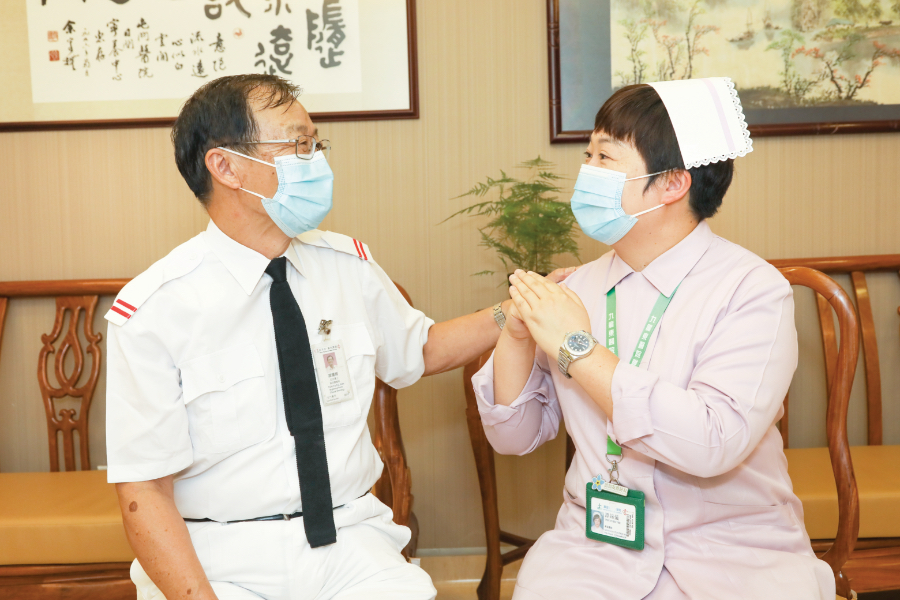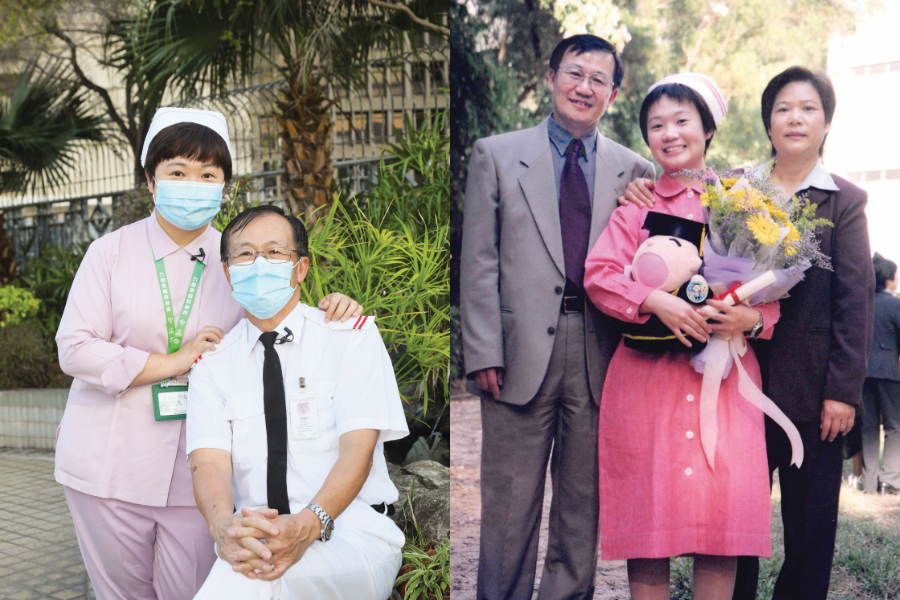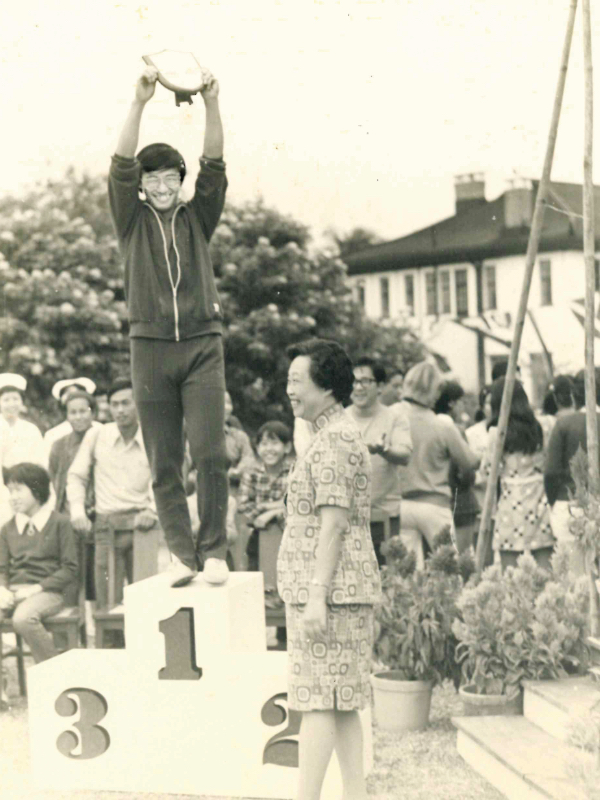Like father, like daughter — Two generations of nursing care

John Tam has been a dedicated nurse for almost half a century. He is 70 years old and is currently a part-time Registered Nurse (Clinical Oncology) at Tuen Mun Hospital. His daughter, Tam Yuen-yee, followed his footsteps and is now an Advanced Practice Nurse (Medicine and Geriatrics) at United Christian Hospital. They stand shoulder to shoulder and heart to heart to witness the changes and development in nursing care in Hong Kong.
Doctors and nurses in collaboration
John says, “In the past, doctors received patients on admission and we provided nursing care according to doctors’ orders. It’s the other way round now. Nurses assess patients first, then doctors give consultations and treat the patients. Nurse clinics have also played a vital role over the last decade and many cases are followed up by nurses.” The role of nurses has changed significantly in the past four decades.
“My father told me that doctors’ opinions matter most in the past, now in my department, we discuss patients’ care plan together. Doctors fully respect our opinions,” Yuen-yee says. “To put in simple words, I would say ‘Nurses care for the patients and their families, while doctors cure the disease.’”
Tuen Mun Hospital set up Hong Kong’s first Child and Family Bereavement Centre in 2003, when John found himself giving emotional support to a bewildered young girl whose father had been diagnosed with cancer. The girl was keen on swimming but had drifted apart from her mother after going through the traumatic experience in dealing with her father’s illness. John encouraged her to do what she loved and she eventually won a gold medal in a swimming gala. To John’s surprise, she gave the medal to him to show her gratitude. John described this as one of the most memorable experiences for him during his decades-long commitment to the nursing profession.
“My sister and I were jealous of that girl, you know, because our father spent so much time on her. But deep down, we were also proud of what he was doing, so we thought, ok we could ‘share’ our father with her.” Yuen-yee remembers this girl’s story very vividly.
“I always tell my daughter that it is fate that connects us with different patients, and more so to be able to accompany them in their final journey,” John says.
“Dad taught me to put myself in patients’ shoes. That’s what I do now in my work with my elderly patients. I try to taste minced and pureed meals and wear hearing aids to experience their worlds,” Yuen-yee says.
“My father told me that doctors’ opinions matter most in the past, now in my department, we discuss patients’ care plan together. Doctors fully respect our opinions,” Yuen-yee says. “To put in simple words, I would say ‘Nurses care for the patients and their families, while doctors cure the disease.’”
Tuen Mun Hospital set up Hong Kong’s first Child and Family Bereavement Centre in 2003, when John found himself giving emotional support to a bewildered young girl whose father had been diagnosed with cancer. The girl was keen on swimming but had drifted apart from her mother after going through the traumatic experience in dealing with her father’s illness. John encouraged her to do what she loved and she eventually won a gold medal in a swimming gala. To John’s surprise, she gave the medal to him to show her gratitude. John described this as one of the most memorable experiences for him during his decades-long commitment to the nursing profession.
“My sister and I were jealous of that girl, you know, because our father spent so much time on her. But deep down, we were also proud of what he was doing, so we thought, ok we could ‘share’ our father with her.” Yuen-yee remembers this girl’s story very vividly.
“I always tell my daughter that it is fate that connects us with different patients, and more so to be able to accompany them in their final journey,” John says.
“Dad taught me to put myself in patients’ shoes. That’s what I do now in my work with my elderly patients. I try to taste minced and pureed meals and wear hearing aids to experience their worlds,” Yuen-yee says.

Every cloud has a silver lining
Although Yuen-yee ‘complains’ she was always referred to as John’s daughter, she is undoubtedly very proud of him. John retired from full-time nursing in 2004 and has worked part-time since then. Six years ago, John was diagnosed with cancer. Fortunately, the cancer was discovered at an early stage, John received timely treatment and has returned to work after surgery. He would now support his cancer patients using his own experience as a cancer patient.
Back then, Yuen-yee was worried about her father and wanted him to retire, but she had her struggle too. “I know how it feels to really want to be able to take care of our patients as long as we can. He aspires to walk alongside his patients and support them as long as he can. I think it is a very magical thing and I resonate with his values.” Yuen-yee knows that giving up is not an option for his father and she does not insist that anymore.
Nursing skills and workflows may change with time, but the aspiration to care for patients is everlasting.
Back then, Yuen-yee was worried about her father and wanted him to retire, but she had her struggle too. “I know how it feels to really want to be able to take care of our patients as long as we can. He aspires to walk alongside his patients and support them as long as he can. I think it is a very magical thing and I resonate with his values.” Yuen-yee knows that giving up is not an option for his father and she does not insist that anymore.
Nursing skills and workflows may change with time, but the aspiration to care for patients is everlasting.
